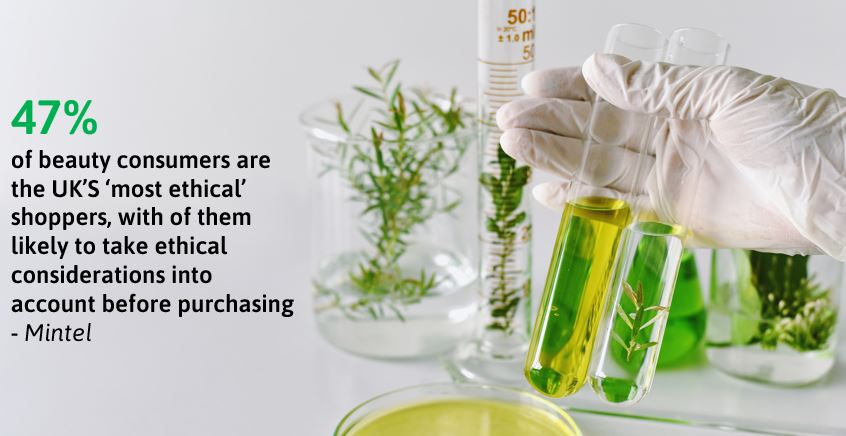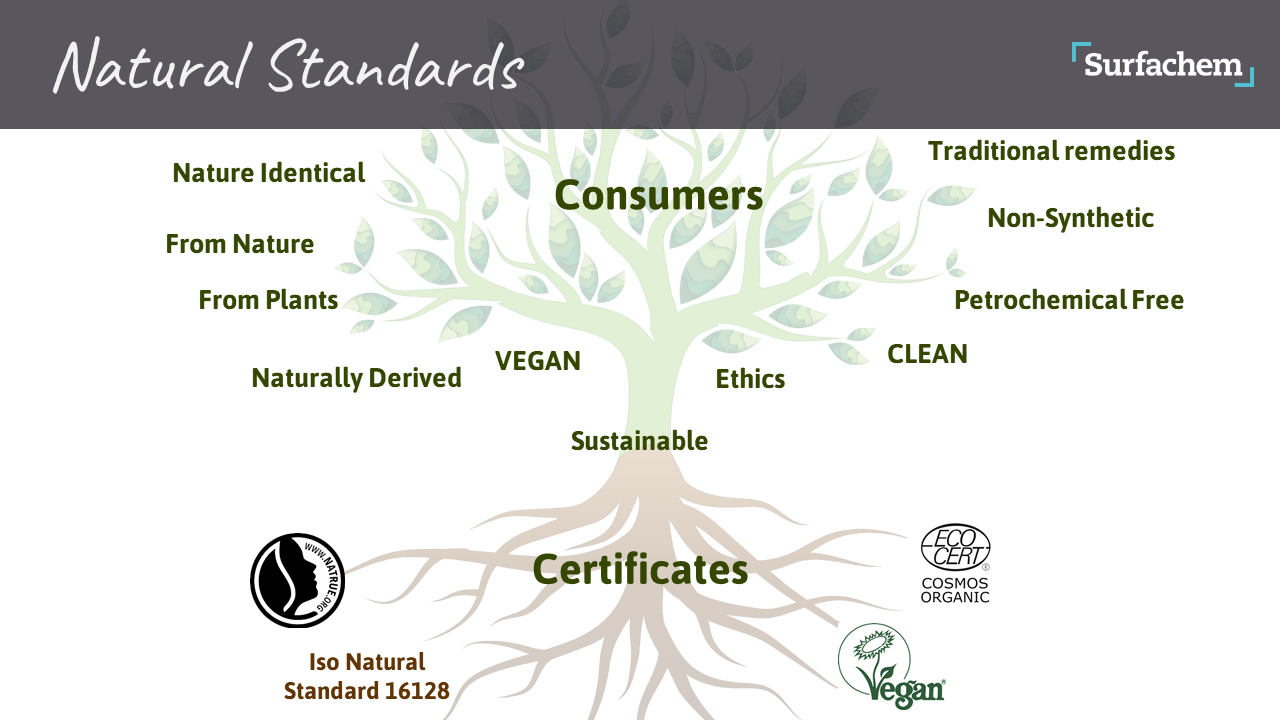Although natural cosmetics ingredients may no longer be novel, there is still a long way to go before natural leads the way as the ‘new normal’ within the beauty industry (Cosmetics Design, 2020.)
What initially began as a ‘natural ingredient’ trend, has escalated to incorporate all elements of cosmetics products, including: safety, transparency, sourcing/manufacturing practices and a range of other factors that contribute to the final product.
Ethical Sourcing
Ethical sourcing is the process of ensuring the products being sourced are obtained in a responsible and sustainable way.
Although COVID-19 is making German consumers increasingly focused on health and personal finance, they are still concerned about sustainability.
Research has found that beauty consumers are the UK’S ‘most ethical’ shoppers, with 47% of them likely to take ethical considerations into account before purchasing Personal Care and Cosmetics products (Mintel, 2019). Consumer desires for ethical products are reflected by increasingly popular skincare claims – for example, in European skincare launches (between Jan 19/20), Ethical Animal, Ethical Sustainable and Ethical Environmental were all featured in the top 10 claims.
Moving Forward
Due to the COVID-19 pandemic, we’ve seen a shift toward the shared experience of collective activism as people seek transformative social change. In addition, since lockdown, 25% of consumers claim that the environment has become a higher priority to them. From this, it is likely this change in consumers’ expectations will drive brands even further to make ethical and environmental matters a priority.
Buydeology
According to Mintel, ‘Buydeology’ is a prominent trend whereby increasing numbers of brands are associating themselves with companies that share their cultural and ideological values, and vice versa.
While there was a time when a brand voicing their opinions could negatively impact the perception and engagement with consumers, now, we are seeing brands become increasingly vocal, in line with consumers demands for ethical and moral views and behaviours.
Market Trends and Influences
With natural ingredients, there’s space to think outside the box. Here’s some market leading examples from Mintel.
ECOCERT – EcoCert is an organic certification, established in France in 1991. As one of the largest organic certification organisations in the world, the natural and organic cosmetic label has a minimum of 95% of all plant-based ingredients in the formula and a minimum of 10% of all ingredients by weight must come from organic farming.
COSMOS – COSMOS certification allows your organic or natural cosmetics to be commercialised worldwide. The COSMOS certification (organic or natural cosmetics) has the guidelines of: promoting the use of products from organic agriculture and respect biodiversity, using naturally derived resources responsibly, respecting the environment, and using processing and manufacturing practices that are clean and respectful to human health and the environment.
Vegan – Although considered by many as a recent surge, ‘veganism’ has actually been around for over 70 years, primarily focusing around products that do not contain meat, dairy and genetically modified organisms. More and more formulators are using ingredients to become 100% vegan certified.
ISO Natural Standard – ISO 16128-1:2016 provides guidelines on definitions for natural and organic cosmetic ingredients. The 16128 ISO standard sets a classification of ingredients and gives the calculations to establish the percentages of natural and biological origin of a finished product.
RSPO -The RSPO has developed a set of environmental and social criteria which companies must comply with in order to produce Certified Sustainable Palm Oil (RSPO). Find out more about our certified RSPO ingredients.
Natural Ingredients | Personal Care
For more information or to request a sample of any of the above, please contact us or send us an email at info@surfachem.de.



